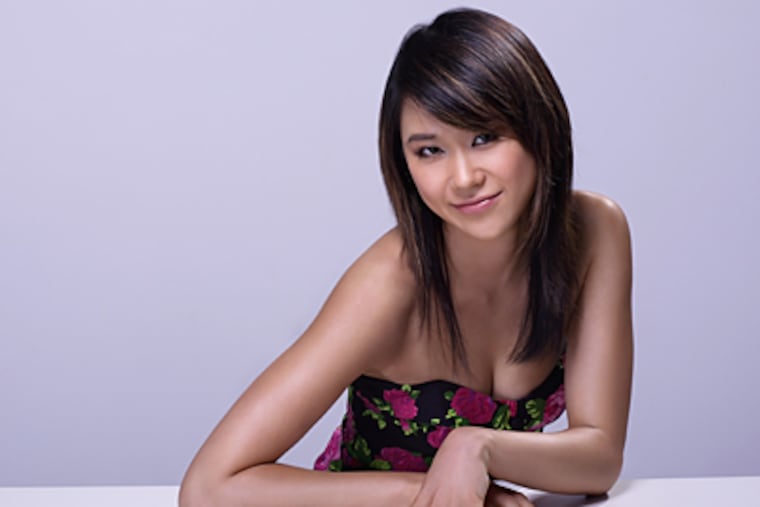Curiosity is satisfied, in most promising ways
The making of a sold-out Philadelphia Orchestra concert depends, and perhaps always will, on intense curiosity about what will take place. And this weekend's full houses at the Kimmel Center's Verizon Hall are prompted by three levels of suspense.

The making of a sold-out Philadelphia Orchestra concert depends, and perhaps always will, on intense curiosity about what will take place. And this weekend's full houses at the Kimmel Center's Verizon Hall are prompted by three levels of suspense.
Can music director-designate Yannick Nézet-Séguin conduct good Tchaikovsky (a core composer in any Philadelphia season)? We know that pianist Yuja Wang can play knockout Rachmaninoff, but how much (or how little) will she wear while doing so? Most high-minded is the Jennifer Higdon factor: Since her Concerto for Orchestra was premiered here 10 years ago, how will the piece hold up in light of more recent pieces such as her Pulitzer Prize-winning Violin Concerto?
Curiosity seemed happily satisfied at Thursday's concert, and in ways promising more interesting things to come. Tchaikovsky's Symphony No. 2 ("Little Russian") made a fine, shrewdly paced case for itself, even if the final movement will always seem a bit long-winded. But Nézet-Séguin covered for the composer with an encore in the form of the "Russian Dance" from one of the composer's last works, The Nutcracker. As ubiquitous as that music is, the evolution from Tchaikovsky at age 32 (the symphony) to 52 (the ballet) took my breath away; The Nutcracker's invention, focus and wit are almost beyond compare with the earlier work. Thus, future (and more mature) Tchaikovsky from Nézet-Séguin may come with special anticipation.
Few young pianists are more winning than Wang, and few pieces are as fail-safe as Rachmaninoff's Rhapsody on a Theme of Paganini - a piece often played by young pianists still making their name. Wang's name is made, and now one wants to hear her play repertoire that more consistently shows listeners who she is. Of course, the Rhapsody does contain the tranquil, often-excerpted 18th variation, and in Wang's hands, it was all the more ingratiating for her restraint, almost as if she were playing an intimate Chopin nocturne.
Chinese pianists tend to be compared with each other, Wang usually emerging as the anti-Lang Lang. To me, her playing most resembles young Christoph Eschenbach (before his conducting career). Even in big romantic-era flourishes, Wang maintains a distilled classicism. Her medium-weight piano tone is unforced, yet projects easily thanks to its clarity of purpose. Such attributes can be overlooked amid her obvious sex appeal. But who would begrudge her Thursday's open-back gown when she wears it like a fashion model?
Since Higdon's breakthrough Concerto for Orchestra in 2001, lots more concertos have gone under the bridge, and with a voice that becomes more hers as time goes on. Yet this earlier work doesn't suffer in comparison, partly because it's unlike anything she's written since, showcasing the many nooks and crannies of the orchestra - sometimes one by one, sometimes all mixed together - with audacious intricacy.
What I most notice now, though, is the piece's wit. It's an endlessly varied bait-and-switch with your expectations, sometimes managed with such good comic timing that you have to laugh out loud. Often, though, the wit is about imagination, as if the composer is showing what astonishing leaps of logic are possible, things that nobody has ever thought of, but suddenly make perfect sense. Isn't that what we live for?
See The Inquirer's
special presentation about the Curtis Institute at www.philly.com/curtisfactor.
EndText
Contact music critic David Patrick Stearns at dstearns@phillynews.com.